Please login or click here to join.
Forgot Password? Click Here to reset pasword
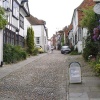 | 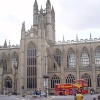 | 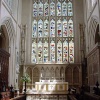 | 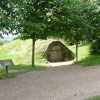 | 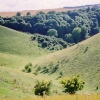 | 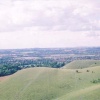 |
| Paul Hilton Posts: 2605 Joined: 21st Nov 2004 Location: UK | quotePosted at 14:37 on 24th June 2013 On 9th June 2013 21:57, Vince Hawthorn wrote:
It would also depend how the monpod is being used---taking a landscape photo compared with panning of a moving subject, or if the the platform the cameras is on is also moving. Also, if you use the AF ON button to focus with, the VR isn't activated while focusing this way. Only the shutter button activates it and preferably held halfway down for it to sample the image for a few moments if this time is available to do so. If shooting with in-built flash, the VR won't operated until the flash has been charged. Stopping down for maximum depth of field, say F16/F22, can soften the image a bit due to diffraction. If sharpness is also a main objective, then F11 max would typically be your best bet. |
| Vince Hawthorn Posts: 12758 Joined: 19th Apr 2010 Location: UK | quotePosted at 22:34 on 24th June 2013 Thank you Paul for your reply, there seems to be a general opinion backed by what you have said, next thing is to get out there and try it out . |
Philip Cross Posts: 17 Joined: 23rd Jun 2013 Location: England | quotePosted at 16:55 on 29th June 2013 I find a graduated neutral density filter a handy piece of kit. For helping keep the sky from being whited out. |
| Edward Lever Posts: 734 Joined: 22nd Dec 2005 Location: UK | quotePosted at 00:02 on 30th June 2013 It is true that a graduated ND filter can be used to darken part of the scene, but will not be of much use if the sky is uniformly grey, as it is so often in England. Choosing an appropriate exposure compensation can avoid the whited out sky in these cases. A graduated ND filter could be used though, to effectively darken a stormy sky to make it look darker and more threatening. Personally, I find graduated ND filters fiddly to use. The only filter I occasionally use for landscapes is a polarising filter, which can darken the blue of the sky and make clouds stand out, without affecting the colours of other parts of the scene. A point to watch out for with all these filters is the reduction in light which occurs, making use of a tripod advisable. Edited by: Edward Lever at:30th June 2013 01:39 |
| Dave John Posts: 22335 Joined: 27th Feb 2011 Location: England | quotePosted at 00:14 on 30th June 2013 Polarisers are a great addition to a photographers arsenal, but be wary when using them with wide angle lenses as the result is quite often far from uniform. But certainly, as Edward suggests, any filter which reduces light, and therefore increases exposure times, hedges towards the use of a tripod. |
Philip Cross Posts: 17 Joined: 23rd Jun 2013 Location: England | quotePosted at 01:57 on 30th June 2013 Grad filters do help with the age old battle between a well exposed sky or kandscape. Not both. I know if you shoot in raw you can photoshop it after. But I desperatly need help with that. I just cant get my head round photoshop. Anyone recomnend a good guide? I started out in b and w in my loft with a zenit enlarger. Think im a bit behind the times! |
| Rod Burkey Posts: 554 Joined: 2nd Sep 2008 Location: UK | quotePosted at 07:52 on 30th June 2013 One good solution would be to do a course in Photoshop. Here, the adult learning courses run for either 10 or 15 weeks. Most local authorities run them and they are very reasonable. You could also go to your local good bookshop and browse through a few different guides and choose one. There are a lot to choose from. Some photo magazines have CDs or DVDs with workshops on Photoshop / Elements, Digital Photo being one of quite a few. Photoshop looks daunting and it is a huge, powerful tool, but the basics come easily,a bit like riding a bike. You will get "hooked" and soon your images will be looking as you wish them. Do you have Photoshop already? If not, Elements is a great, and cheaer alternative. Many love Lightroom and Gimp is free! I do use Photoshop and just love the way a Raw image can soon be looking very good indeed. Many images look good without any manipulation, but with your enlarger, I imagine you did some burning in and holding back, maybe also using multi grade grade papers and various favourite developers. Think of Photoshop in much the same way. It looks a lot harder than it is. It must be if I can do it! Good luck Philip. |
| Dave John Posts: 22335 Joined: 27th Feb 2011 Location: England | quotePosted at 09:13 on 30th June 2013 A lotof the photo magazines come with dvd's attached which usually cover a few Photoshop excersies. But you may like to look at one of the more 'oneoff ' publications which sell for around £12-15. These also come with a dvd to accompamny some of the artivles. They are usually compilations of previous magazine article anyway, so are quite good value. When shooting RAW think of the resulting image as the 'negative' you would have had int the old days. You work from it and do not destroy it. When you have 'tidied up' the basic RAW image in 'Camera RAW' and then convert to the 'jpeg' work screen make sure you always create a 'copy' of the image and work from that. RAW images are known as 'non destructive' abd 'jegs' are 'destructive in that any work done and saved on the original is final..... But as most people tend to rename the final image and'save as' in a different file on the PC you can usually get away with out spoiling the 'original' jpeg file. Photoshop and Elements can be confusing but I am basically self taught with aid from magazines and cover discs. I would suggest that Elements is the way to go as it is about 10% of the cost on Photoshop, plus Photoshop is very soon going be a minthly subscrioption based tool????. When you first open an image in Photoshop or any other software don't be frightened, it looks complicated but is quite intuiitive. To be on the safe side choose a ' non important' image to play with first or simply create a few copies of images. At least this way if you make any mistakes you will not lose any masterpieces!! And I'm with Rod on this one......GOOD LUCK!!!!!
|
| Dave John Posts: 22335 Joined: 27th Feb 2011 Location: England | quotePosted at 09:19 on 30th June 2013 Phil you might also like to go to the main forum menu, PHOTOGRAPHY ...... then PHOTOGRAPHY SOFTWARE....there is quite an extensive thread on RAW which might make additional useful reading. |
| Dave John Posts: 22335 Joined: 27th Feb 2011 Location: England | quotePosted at 09:44 on 30th June 2013 Just been checking a couple of magazines Phil and if you get a copy of the current issue of 'DIGITAL CAMERA' the free dvd has a link to a free copy of CAPTURE 1 EXPRESS which is a RAW CONVERTER and EDITOR, and looking at the write up in the mag seems very similar to the ADOBE programs. £4.99 for a magazine and a free editing program sounds a bit of a good idea to me......bit cheaper that £60-70 for Elements or £600+ for Photoshop. Plus you get a few interesting articles and ideas to boot.....
|